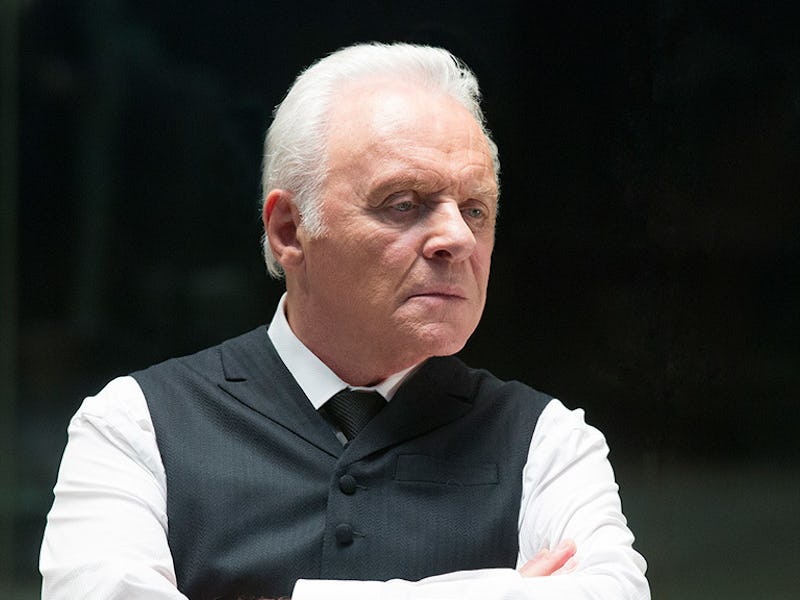Hideo Kojima, Japanese video game auteur and creator of the Metal Gear series is apparently a big fan of HBO’s Westworld. And while Hideo Kojima is a noted cinephile who loves commenting on the latest television series and films on Twitter, his fascination with HBO’s hit sci-fi series apparently also happens to bleed into Kojima’s personal video game design philosophy.
In the second episode of Westworld, “Chestnut,” the theme park’s arrogant narrative designer Lee Sizemore (Simon Quarterman) shows off his plans for an ambitious, bloated new storyline addition to the park titled: “Odyssey on Red River.” Sizemore’s new narrative was to be some kind of grand, sweeping odyssey in which players would experience adventure, danger, and romance with Sizemore promising that the adventure would allow park goers to “discover” who they were as people. Unfortunately for Sizemore, his story was vetoed flat out by Westworld’s founder and creator, Dr. Robert Ford (Anthony Hopkins).
Ford’s rejection of Sizemore’s proposal for the new story came with a lecture from Ford about his own design philosophy, one that runs counter to Sizemore’s, and one that found a kindred spirit in Hideo Kojima.
Kojima’s transcription of the scene is a little off with the original quote from Ford, which actually reads:
“They come back because of the subtleties, the details. They come back because they discover something they imagine no one had ever noticed before. Something they’ve fallen in love with. … They already know who they are. They’re here because they want a glimpse of who they could be.”
For anyone who has played any of the Metal Gear games directed by Kojima, this quote should be very resonant. Kojima’s postmodern, stealth-action spy series creates fantastic worlds that combine philosophical symbolism, action movie pastiches, and richly detailed environments that don’t detract from the player’s personal experience with the game. The latest game in the series, Metal Gear Solid V, felt like a culmination of Kojima’s design philosophy, creating a huge, open-world environment that encouraged player freedom within a Kojima-imagined stage.
It’s appropriate that Kojima aligns himself with Ford’s design philosophy as the real-life Japanese video game developer has essentially spent his career building up a franchise from humble origins into massive, highly technical games. As a highly ambitious creator, it might only be a matter of time until Kojima begins creating his own version of a real-life Westworld.
